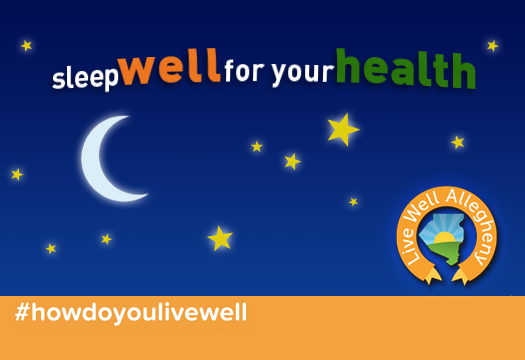Sleep is Important to Living Well
Did you know that getting enough sleep is important to your health and well-being? According to Healthy People 2020, adequate sleep helps to: fight infection, support metabolism of sugar to prevent diabetes, perform well in school and at work. Most adults should get between 7-9 hours of sleep each night to be well rested and ready for the day. If you find yourself struggling to fall asleep or get restful sleep, follow the steps below:
1.Decrease your screen time.
The blue light from your TV, computer, and cell phone screens messes with your body’s natural sleep/wake patterns, making it more difficult to fall asleep when you lay down at night. Try unplugging from technology at least 30 minutes before you plan to go to bed. If you can’t unplug, another option is to get an app that will help control the blue light coming from your tech devices after the sun goes down for your computer or iphone or for your android device.
2. Add relaxing activities to your nightly routine.
Your bedtime routine doesn’t have to stop at brushing your teeth! Add in some stretching or deep breathing to calm your mind and your muscles to prepare your body for sleep.
3. Try to keep a regular sleep schedule.
Use this awesome bedtime calculator to find out when is best for you to go to sleep at night. After you know when you should be going to bed based on when you need to wake up, try to keep a consistent schedule.
4. Exercise!
If you need another reason to start exercising, here it is! Research shows that for those who have trouble sleeping, exercise may help people fall asleep faster, stay asleep longer, and have better sleep quality than before they began exercising regularly.
5. Reserve your bedroom for relaxation and sleeping
Try to only do relaxing activities in your bedroom. Avoid bringing homework, work-related tasks, violent television or games, etc. into your bedroom. Get a comfortable mattress, pillow, and bedding and keep your room dimly lit for a better sleep atmosphere.
Check out sleepfoundation.org for more great sleep tips!

